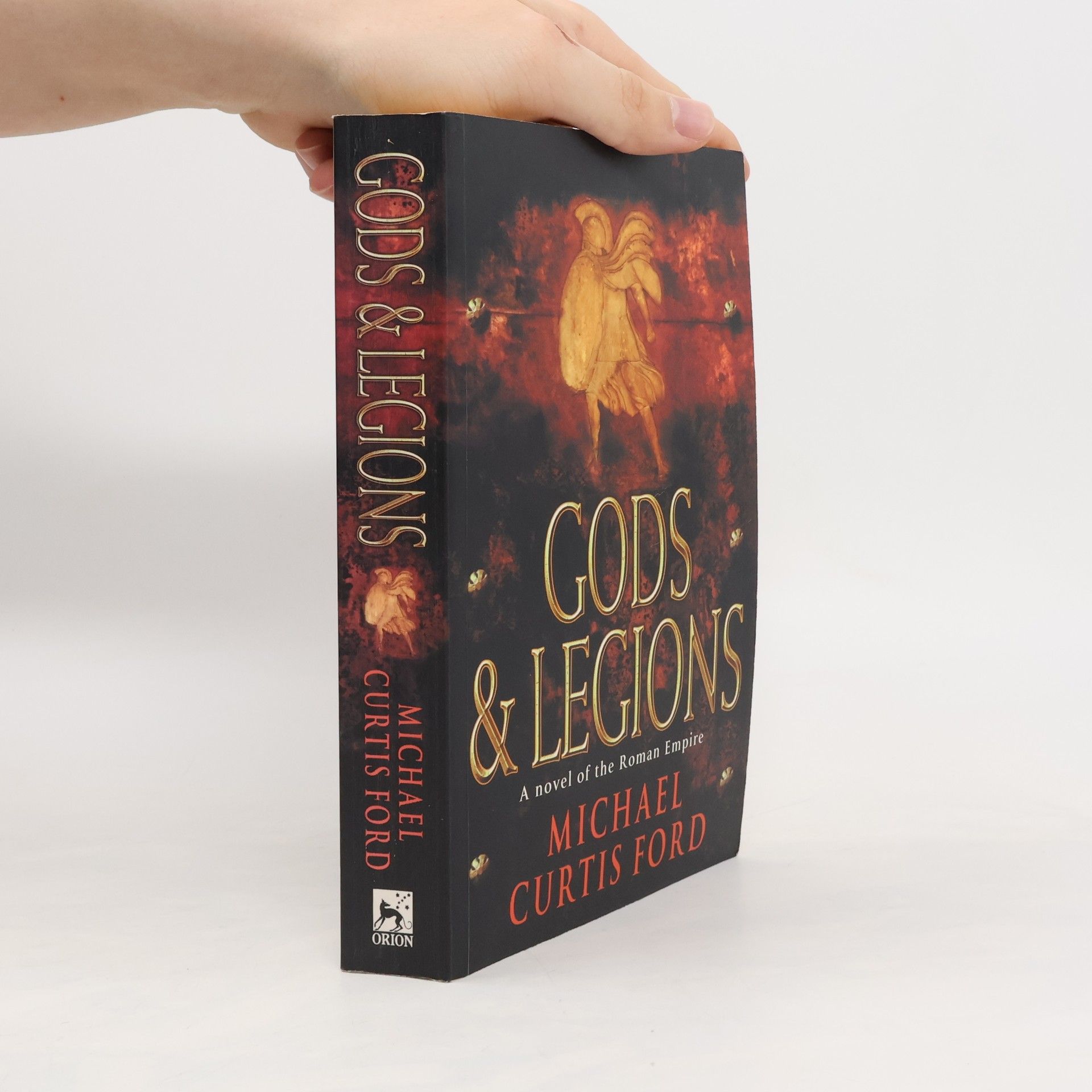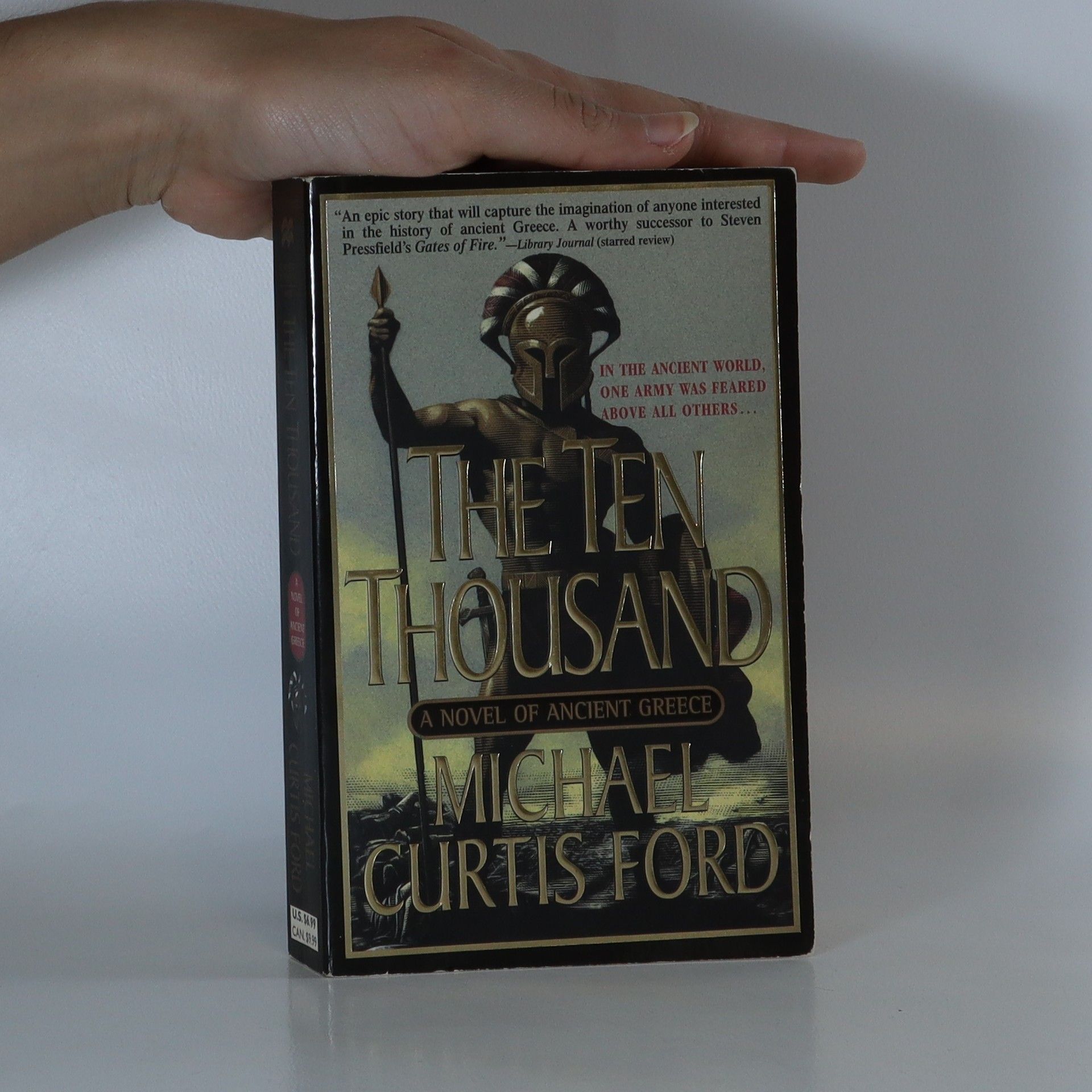Hunting the Last Great Pirate
- 234 páginas
- 9 horas de lectura
The true story of the pirate attack against the unarmed Quaker ship, Morning Star, in 1828.
Michael Curtis Ford escribe novelas históricas ambientadas en los mundos de la Antigua Roma y Grecia. Su diverso trasfondo profesional, que abarca desde obrero hasta profesor de latín, imbuye su narrativa de autenticidad y profundidad. Ford explora temas relacionados con la historia militar y la vida antiguas, y sus obras destacan por su meticulosa investigación y sus cautivadoras narrativas.







The true story of the pirate attack against the unarmed Quaker ship, Morning Star, in 1828.
In Ancient Greece, an army of mercenaries, camp followers, dreamers, and glory seekers sets off to help a rebellious foreign general. In the months that follow, these men--trained and hardened in 30 years of war in Greece--engage in pitched battles, witness untold horrors, and begin Xenophon's march of the Ten Thousand across the desert, over rivers, and into the jaws of hell itself. Martin's Press.
It is 354 AD. Julian, a young scholar in Athens, is the last survivor of a bloody political purge that killed his entire family. Unexpectedly summoned to the court of the Emperor Constantius, he fears the worst - only to find himself promoted to Caesar of the Western Empire. Julian proves to be a military genius, crushing the German tribes that have threatened Rome for generations. Soon after, defying his own emperor against overwhelming odds, he risks civil war and ultimately seizes the Empire for himself, becoming the most powerful man in the world while still only 30. Now the dark side of his ambition emerges. Julian discards the Christianity of his boyhood and sets his sights on the greatest conquest of all - the Persian Empire. In Persia, however, his gods and his sanity desert him, and in one swift stroke the course of history is altered forever. This breathtaking account of the life of Julian explores one of the most dangerous periods - and one of the most enduring mysteries - of all time.
Nel V secolo d.C., Attila invase la Gallia a capo di un milione di uomini. Determinato a dare il colpo di grazia all'ormai fragile Impero romano d'Occidente, mise a ferro e fuoco una ventina di città. Solo un uomo aveva la forza e l'autorità morale per arrestare la sua orda: Ezio, generale romano che era stato ostaggio privilegiato degli Unni e che Attila rispettava. Ezio riuscì a coalizzare Visigoti, Alani e Burgundi, che si unirono alle legioni romane, e nella battaglia di Chalons le due parti si affrontarono mettendo in gioco tutto: l'astuzia, il coraggio, l'onore. Fu una carneficina: sul campo morirono quasi duecentomila uomini.
Další historický román M. C. Forda, stejně úchvatný jako Deset tisíc, přináší strhující příběh o jednom z největších válečníků historie, muži usilujícím o plášť Alexandra Velikého. Ve válečném tažení proti rostoucí moci Říma se snaží sjednotit národy starověké řecké říše. Největším nepřítelem Římanů nebyli Gótové ani Hunové, ale nadaný král Mithridatés VI. Eupator z Pontu, vládnoucí říši u Černého moře. V jedenácti letech zdědil malé horské království, které ovládala jeho matka. K moci se dostal ve svých jedenadvaceti letech a prokázal se jako vojenský génius, když sjednotil rozdělené kmeny pod svou vládou. Vzhledem k zájmům Říma v této oblasti došlo k nevyhnutelnému konfliktu. Po více než čtyřicet let Řím posílal své nejlepší generály, aby Mithridata zkrotili, avšak jeho vojska utrpěla řadu porážek. Mithridatés považoval každou prohru za strategický ústup a brzy se vrátil do boje s ještě silnější armádou. Tento román ukazuje autorovu vypravěčskou dovednost a historickou erudici, přičemž oživuje dávný svět plný hrdinských bitevních scén.